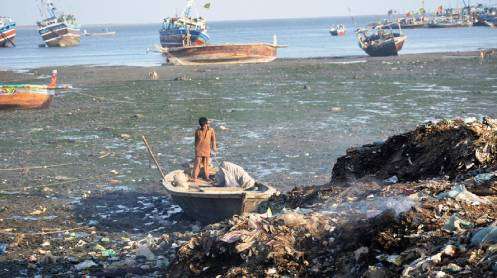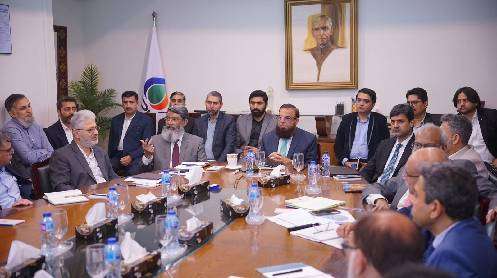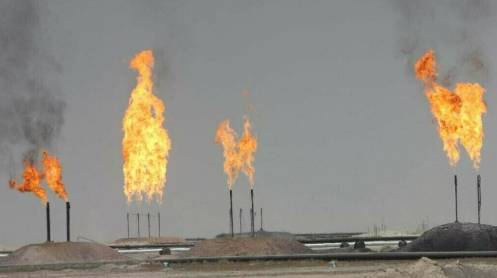ISLAMABAD: Federal Minister for Maritime Affairs Muhammad Junaid Anwar Chaudhry has sounded the alarm over the escalating marine pollution crisis, warning that it endangers Pakistan’s blue economy by threatening biodiversity, fisheries, tourism, and public health.
Chairing a long-overdue meeting of the Marine Pollution Control Board, the minister expressed concern over a 15-year lapse in board sessions and directed regular meetings going forward. He also announced the formation of two committees to submit reports within 20 days on the Sewage Treatment Plant-III (STP-III) and Combined Effluent Treatment Plant (CETP) projects, both crucial to treating Karachi’s industrial and municipal wastewater.
Chaudhry emphasized strict enforcement of environmental regulations under the Merchant Shipping Ordinance and the Pakistan Environmental Protection Act, calling for heavy penalties against violators. He also proposed expanding the regulatory powers of the Sindh Environmental Protection Agency (SEPA) for more effective oversight.
Officials revealed that Karachi discharges over 472 million gallons of sewage daily—nearly 100 million gallons of it industrial—into the Arabian Sea via the Lyari and Malir rivers. Solid waste, including plastics and other debris, further pollutes coastal zones.
The minister stressed that up to 90% of land-based marine pollution—primarily untreated sewage and solid waste—can be prevented with targeted interventions. He also urged tighter controls on sea-based pollution sources such as ship waste, ballast water, offshore drilling, and shipbreaking, which contribute around 10% to overall marine degradation.
Proposed solutions include installing trash nets on stormwater drains, fencing polluted rivers, and clearing floating debris from harbours. The minister also pushed for accelerating sewage treatment projects in critical coastal areas such as Manora, Baba Bhit, Kalri, and Phitti nullahs.







